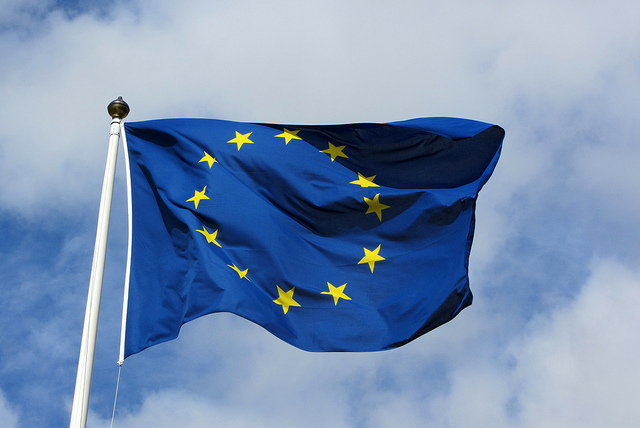What has the EU ever done for us?

The EU does a lot of work to help drive Science, technology and innovation across Europe, and I think in the mist of the Brexit debate this can get over looked. My day job involves working with these EU programmes, so I thought I’d share what I’ve been involved in, and have worked on.
European Research Programmes
There has been so much talk recently about how the EU imposes restrictions on business, and creates silly rules. Now, not every organisation is perfect, but national politics aside the EU can and does do some good work.
The EU works hard to support the creation new jobs via new technologies and the associated research. To do this the EU is constantly looking at how we in Europe compete against other major counties, and it tries hard to ensure success for everyone living in the EU. This, as you can imagine is no easy task. Europe is big and has many millions of people, all with different skills dotted about many different countries.
I want to tell you about the European research programs I’ve been involved in and how, they have in the past created thousands of jobs across Europe, including the UK. The very same research is touching on the cutting edge of technology today and has the potential to create an amazing future for us all. Before I cover the European research program it is important to go back in time and to a different continent, North America.
Research Grants and The Birth of the Internet
Back in the 1980s the European Commission studied how each member states sponsored research and innovation policies compared to other counties from outside Europe. Specifically they looked at the DARPA (Defence Advanced Research Projects Agency) research grants issued by the US. Although these grants were, and still are, focused on defence research, Europe recognised the huge impact they had on the US economy. To give you an example of the impact DARPA grants have, I should point out that the entire internet was born from a DARPA grant. The initial research lead to the birth of the ARPANET, and eventually to the internet we know today. More recently the self driving cars we see from Google; that core technology is also from DARPA.
The Birth of European Research Projects
The DARPA grants are big, much bigger than any of the support packages that any individual state could provide. Europe decided it needed something on a similar scale, that would maximise the research value of everyone across Europe. From this was born the “Framework Projects”. These projects started in the 1980, and continue to evolve. The latest iteration of the Framework Project is called Horizon 2020, or H2020 for short.
The Framework projects have had some huge success. The “3G” technology that powers almost everyone’s mobile phone was designed and developed in Europe, with the support for European Research Grants.
Beyond Defence Research
The DARPA research grants, are by their very nature focused on defence. In contrast the EU Framework Projects and H2020 are not bound to defence. They include topics as diverse as archaeology and healthcare. The H2020 website contains a collection of “project stories” which highlight the diverse nature of the research grants and what they have achieved. This includes stories about a project designed to spot pancreatic cancer early which would dramatically improve survival rates, to a project about preserving ancient documents with digital copies.
And me?
Well as someone who works in software, my focus in H2020 research has been on extending the “cloud” from data centres, right out to the phone in your hand - turning that to into a cloud machine. I’ve also been working on new ways in which computer networks can operate (SDN/NVF) and how the software that manages that works. This all sounds quite geeky, and I apologise - it is. But I hope that some of this research will help contribute to the next wave of mobile and cloud technology, some of which could end up being in that little “5G” logo that will appear on your mobile device some time in the future.
H2020 Research Grants
I should add, that the research grants are available to all companies in Europe. The EC holds open days to educate people on how the programme works. Each year the EC announces a set of research topics, these are broad problem statements, or “calls”. Groups consisting of universities, SMEs and large industrial organisations from 3 or more member states get together in a consortium to submit a detailed problem statement and proposed solution which would address the problem outlined in the “call”. This is a competitive process and the EC uses a bunch of external experts to review the proposals it receives. The top solutions are then selected for funding.
The process of writing a good proposal can be hard, but as a researcher even this can be very rewarding. Imagine getting the time to work with some of the smartest people in Europe in some of the biggest challenges in your field. Thinking of creative ways to address these issues with them, brainstorming and then working hard to refine the solution. It really can be a lot of fun, and when done well even the act of writing the proposal can open up a world of new ideas.